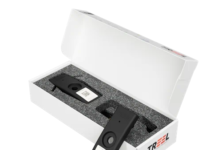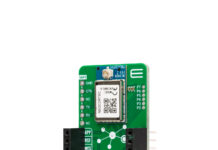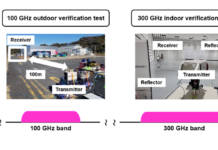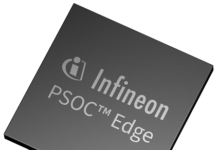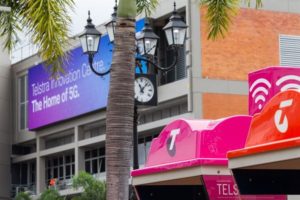
Ericsson , Telstra and Intel have successfully completed the first end-to-end 5G non-standalone (NSA) 3GPP data call on a commercial mobile network at Telstra’s 5G Innovation Centre on the Gold Coast Australia in a multivendor setup. With this achievement, the companies have taken 5G out of the lab and into a real-world mobile network environment.
The call was the first of its kind over 3.5GHz spectrum, bringing together the core components from multiple companies required for a real commercial 5G network call. It included Telstra’s 5G NSA commercial network, licenced 3.5GHz commercial spectrum, Ericsson’s commercial 5G NR radio 6488, baseband and packet core for 5G EPC, a personal Telstra SIM card and the Intel® 5G Mobile Trial Platform for the 5G NR UE.
This milestone quickly follows the July 6 lab-based data call by Ericsson and Intel, together with Telstra and other early-moving 5G service providers at the Ericsson Lab in Stockholm, accelerating efforts to deploy commercial 5G networks.
Telstra’s Group Managing Director Networks Mike Wright, says: “Demonstrating this 5G data call end-to-end using my own personal SIM card on Telstra’s mobile network is the closest any provider has come to making a ’true’ 5G call in the real world-environment, and marks another 5G first for Telstra. We continue to work with global technology companies Ericsson and Intel as well as global standards bodies to advance the deployment of commercial 5G capability in Australia.”
Fredrik Jejdling, Executive Vice President and Head of Networks at Ericsson, says: “We’re quickly moving towards 5G commercial reality. Achieving the first commercial data call with our partners Telstra and Intel shows the progress we’ve made from testing the technology in a lab to a 5G commercial network environment. 5G is open for business and Ericsson is helping customers get it done.”
Asha Keddy, vice president and general manager, Intel Next Generation and Standards, says: “Along with Ericsson and Telstra, Intel continues to demonstrate its strong 5G technical capability, as showcased by this first 5G data call on commercial infrastructure deployed in Telstra’s network. Intel will continue to collaborate on 5G tests and multiple use cases ahead of Telstra’s planned 5G commercial launch that will bring powerful, low-latency and high-bandwidth experiences to consumers.”
The commercial data call is the latest in a series of 5G milestones by Telstra to drive network leadership in Australia and provide customers with the next-generation mobile technologies. Previous 5G firsts include:
- the world’s first 5G data call over 26GHz mmWave spectrum in November 2017
- the world’s first 5G-enabled WiFi precinct
- Australia’s first 5G car on the road in February 2018 and
- an Australian first 5G mobile gaming demonstration in May 2018
Ericsson, Telstra and Intel will continue to conduct 5G tests across multiple use cases ahead of the expected 5G commercial network launch by Telstra in early 2019.
Technology background:
The 5G data call was made over Telstra’s 5G NSA enabled commercial network using the following components:
- Ericsson’s base station comprising Baseband 6630, AIR 6488 and 4G / 5G system software
- Telstra’s licenced 5G Band 42 (3.5 GHz) and 4G Band 1 spectrum (2100 MHz)
- A Telstra retail SIM
- Network connection to an Ericsson virtualized 5G packet core (vMME and vEPG) running on Ericsson’s NFVi – the 5G slice was connected into the existing Telstra mobile network, which supports other functions such as backhaul, user authentication, billing and provisioning
- Intel® 5G Mobile Trial Platform for the 5G NR UE, running an early 3GPP Rel15 Intel 4G module and a 5G NSA implementation



